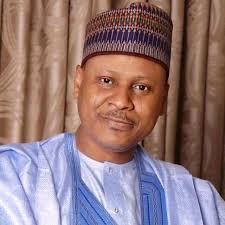Minister of Information and National Orientation, Mohammed Idris, has urged the media not to yield their platforms to provide publicity for acts of terrorism, which can inadvertently embolden the terrorists and also dampen the morale of the security forces.
Idris made the remarks in Abuja on Tuesday when he declared open a two-day training workshop for Defence Correspondents with the theme “Effective Reporting Towards Strengthening Alternatives to Terrorist Ideology”, organized by the National Counter Terrorism Centre (NCTC) in partnership with the Institute for Peace and Conflict Resolution.
“It is not often people who are fighting terrorism are usually acknowledged. It’s important for all of us to know that terrorists are not just fighting a physical war, they are also fighting a psychological war.
“Therefore, it beats my imagination when media managers sometimes subconsciously promote the activities of these terrorists. Without propaganda, terrorism will not thrive,” he said.
Idris said the media should exercise caution and responsibility in their reporting in order not to present the terrorists as heroes fighting for a social cause.
“Terrorism is not merely a physical threat; it is an ideological battle of the mind with the extremist groups exploiting vulnerabilities, spreading fear, and propagating messages that present them as fighting for a social cause, in order to further their depraved agenda. To counter this, we must offer compelling, positive alternatives that resonate with the same audiences targeted by terrorists. Therefore, your reporting plays a pivotal role in this endeavor,” he said.
Idris also noted that sensational reporting, misinformation and fake news can be as damaging as the terrorist acts themselves, hence the need for the media to avoid it at all cost.
The Minister commended the NCTC for sustaining its engagements with the media, stressing that the approach significantly contributes to shaping public perception and understanding of the complex issues surrounding terrorism and national security.
Idris said in the fight against terrorism, the media can either undermine or bolster the collective efforts to provide alternatives to extremist ideologies and that through their reports, images, and commentaries, the media have the unique ability to educate, inform, and inspire resilience among the public.
He therefore advised the Defence Correspondents to work closely with security experts, sociologists, psychologists, and community leaders to provide a multi-faceted perspective on terrorism and its alternatives.
In addition, the Minister said the media should continue to project successful initiatives and programmes of NCTC and ONSA that counter radicalization as well as the rehabilitation and reintegration of repentant terrorists into the community.
Thirty journalists from different media houses are undergoing the training for the first phase.


